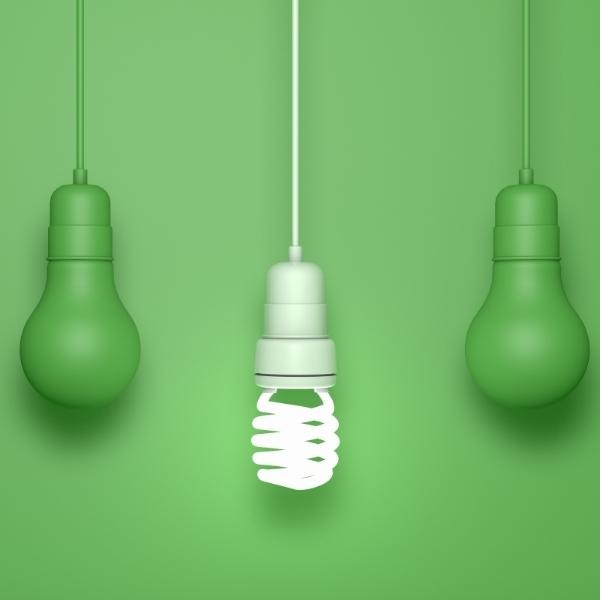
How to be an energy-wise beauty business
By Green Salon Collective | 28 December 2022 | Expert Advice, Feature, Sustainability & the environment

Green Salon Collective (GSC) was founded in 2020 by environmental experts, campaigners and beauty professionals, with an aim to help member salons in the UK and Ireland to responsibly dispose of their waste. In this blog, Stephanie Hodgson, head of research and development at GSC, details how beauty businesses of all sizes can minimise their energy usage and emissions…

Instagram.com/greensaloncollective
Becoming an energy-wise business: one that actively and regularly monitors and reduces its energy usage, is incredibly beneficial. You lower your energy bills, thus saving money. You may better meet increasing consumer demand for ethical brands and similarly, be better positioned to recruit and retain talent, as workers are increasingly drawn to companies that share their values. You will also be doing your bit to limit global warming.
Educate & engage your team
We would argue that the most powerful thing you should do first is educate yourself and those in your business about energy and emissions. Some of the key takeaways would be around climate change, greenhouse gas emissions and the relationship between those and business.
Then, consider awarding your staff for their energy-saving efforts. Do you have an employee of the month award? Perhaps a new criteria for this could focus on being a good workplace environmental steward.
Audit energy usage
To help your business understand its energy usage, you may opt to do an audit, either via an external company or internally. You can use the results of this to determine your baseline energy use and make key adjustments to save energy. Many electric utility companies offer free audits, where a professional will come to your business and do a full inspection of your space to check for air leaks, insulation issues or opportunities to install energy-efficient lighting and/or appliances. Or, involving your staff may help them engage with the topic of energy efficiency.
You may choose to report usage and emissions internally or publicly. Doing so publicly may help to increase trust in your brand, as consumers and customers expect transparency.

Change energy provider
When looking at renewable energy for your business, the term ‘Renewable Energy Guarantees of Origin’ (REGOs) will often come up. This is important to bear in mind as the Renewable Energy Guarantees of Origin scheme lets consumers know exactly how much electricity from a supplier comes from renewable sources. Learn more here.
Evaluate equipment
Phantom energy is a huge, completely avoidable waste. This is energy that is still being used by equipment that remains plugged in but not in use. You can combat this by programming equipment to standby or hibernate during breaks, and by powering down equipment when closing for the day.
Choose energy efficient equipment where possible, too. An example is finding Energy Star certified equipment that powers down after a user-specified period of inactivity. Or did you know that laptops consume less energy than standard desktop computers – by some estimates, 90% less? However, only acquire energy-saving equipment when old equipment is no longer serving its purpose.
Look at lighting
Here’s our checklist of energy-saving lighting tips:
- Take advantage of natural sunlight. You could invest in sun tubes or tunnels, which effectively channel natural light.
- Turn off lights when not needed.
- Clean dusty lighting regularly.
- Use long-lasting, low-energy LED lighting.
- Install energy management system (EMS) technology to automatically control lights.
- Buy fixtures with a dimmer to manually adjust intensity.
- Install motion detectors for frequently unoccupied areas.
- Rewire restroom fans to operate with lights.
- Install independent lighting in each area of your business.
Assess HVAC (Heating, Ventilation, Air Conditioning)
To conserve heating or cooling:
- Install blinds to keep your space cool, and close them early morning and late evening to reduce heat gain from the sun.
- Invest in reflective window film or awnings on all south west facing windows.
- Paint the outside of your building white and plant trees to provide shade.
- Install locking covers on your thermostats to prevent people from tampering.
- Close doors to contain air conditioning, and look for places where heat or air conditioning could escape.
- Clean condenser coils and replace filters regularly. (A dirty filter reduces air flow and makes the system work hard, which wastes energy. Clean filters protect the system by preventing dust and dirt from entering.)
- Install adjustable speed drives, which change the speed of your air conditioning’s fan motors to match the amount of air that is needed.
Consider solar
Although they are an investment, solar panels will eventually pay for themselves and leave you with reduced, if not eliminated, electricity costs. This investment is ultimately your business hedging against higher electricity prices in future. With the installation of batteries, you can store energy that can be used for later consumption or you can sell back excess energy to the national grid.
Think about travel
We recommend you encourage employees to use public transportation or car share. You may choose to offer benefits for doing so. If you’re paying for parking spaces, it might be more cost-effective to offer a benefit in which you pay for an employee’s monthly bus pass instead, for example. For those with inescapable parking needs, you could install electric vehicle recharging points.



